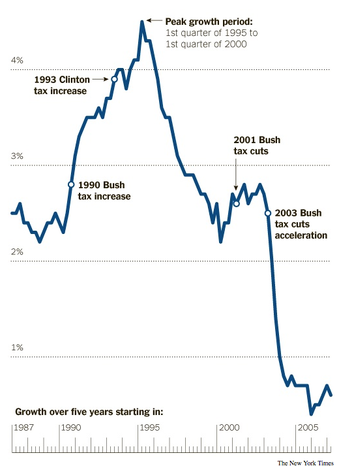 Ahoy mateys. It be Cap’n Hank Bloodbeard hijacking your blog ag’in. Since the establishin’ of International Talk Like a Pirate Day in 1995, the number of Pirates has increased gratifyin’ly thereby proving the success of our Pastafarian Pirate Recruitin’ Program and confirmin’ the link between increased piracy and declinin’ Global Warmin’.
Ahoy mateys. It be Cap’n Hank Bloodbeard hijacking your blog ag’in. Since the establishin’ of International Talk Like a Pirate Day in 1995, the number of Pirates has increased gratifyin’ly thereby proving the success of our Pastafarian Pirate Recruitin’ Program and confirmin’ the link between increased piracy and declinin’ Global Warmin’.
But wait ye say, Global Warmin’ has gotten worse and Pastafarianism is a made up religion contrived out of equal measures of ennui, ignorance and Rum!
WHY IS THERE NEVER ANY RUM! Oh, that’s why.
Ye scurvy dog, them be fightin’ wards. Ye’ll walk the plank. I’ll keelhaul ye. I’ll see your black hearted soul in Davey Jones Locker (the one ‘e shares w’ Peter Toth).
We used to worry about that too until we took up w’ a crew o’ Freshwater Pirates from the Chicago School who explained that it doesn’t matter how consistently and thoroughly wrong ye are if ye suck up to rich people enough and parrot their prejudices, beat down the po’ folk until morale improves, and kiss their ass long and hard. Take what ye can, give nothin’ back, yo ho.
Polly want a grant?
E’en on these shores Cap’n Bloodbeard (aside from really enjoyin’ referin’ to hisself in the thard person) be known for ‘is trail of terror and carnage and really bad puns.
I generally celebrate International Talk Like a Pirate Day by telling the 3 Pirate Jokes. There are only 3, all the others are just variations. As Cap’n Slappy says:
Thar be only three pirate jokes in the world. The biggest one is the one that ends with someone usin’ “Arrr” in the punchline. Oh, sure, thar be plenty o’ these, but they’re all the same damn joke.
“What’s the pirate movie rated? – Arrr!”
“What kind o’ socks does a pirate wear? – Arrrrgyle!”
“What’s the problem with the way a pirate speaks? – Arrrrticulation!”
…and so forth. |
The second joke is the one wear the pirate walks into the bar with a ships wheel attached to the front o’ his trousers. The bartender asks, “What the hell is that ships wheel for?” The pirate says, “I don’t know, but it’s drivin’ me nuts!”
And finally. A little boy is trick or treatin’ on Halloween by himself. He is dressed as a pirate. At one house, a friendly man asks him, “Where are your buccaneers?” The little boy responds, “On either side o’ me ‘buccan’ head!”
And there ye have it. A symposium on pirate humor that’ll last ye a lifetime – so long as life is violent and short.
If ye steer a course to the official website of International Talk Like A Pirate Day, ye may wish to read the FAQ, to help ye splice the mainbrace proper like. Then ye’ll be ready to talk like a pirate.
Talking like a pirate, however, doesn’t just mean running through the hallways yelling “yarr!” at everyone. To get more in touch with one’s inner pirate, here is a short list of useful terms that may help readers throughout their day of pillaging and searching for buried treasure.
I also spend this day in Worship at Church and emulate the manners, customs, and language o’ me Pirate forbearers (I have the good fortune to be 1/4 full blooded Pirate through my Viking ancestors, indeed Viking is a verb which means ‘Pirate’) and singing some Pirate Carols.
The Crimson Permanent Assurance
In the bleak days of nineteen-eighty-three, as England languished in the doldrums of a ruinous monetarist policy, the good and loyal men of the Permanent Assurance Company– a once-proud family firm, recently fallen in hard times– strained under the yoke of their oppressive new corporate management.
Pushed beyond the bounds of decent and reasonable victimisation, the aged retainers take their destiny in their own hands and– Mutiny!
And so, the Crimson Permanent Assurance was launched upon the high seas of international finance.
There it lay, the prize they sought, the richest jewel in the crown of the I.M.F.: a financial district swollen with multi-nationals, conglomerates, and fat, bloated merchant banks.
Hidden behind the faceless, towering canyons of glass, the world of high finance sat smug and self-satisfied as their future, in the shape of their past, slipped silently through the streets, returning to wreak a terrible revenge.
Adopting, adapting, and improving traditional business practices, the Permanent Assurance puts into motion an audacious and totally unsuspected takeover bid.
And so, heartened by their initial success, the desperate and reasonably violent men of the Permanent Assurance battled on… until, as the sun set slowly in the west, the outstanding return on their bold business venture became apparent: the once-proud financial giants lay in ruins, their assets stripped, their policies in tatters.
Full speed ahead, Mr. Cohen!
Up, up, up your premium. Up, up, up your premium.
Scribble away!
Up, up, up your premium.
And balance the books.
Up, up, up your premium.
Scribble away!
Up, up, up your premium.
But manage the books.
Up, up, up.
It’s fun to charter an accountant
And sail the wide accountancy,
To find, explore the funds offshore
And skirt the shoals of bankruptcy!
It can be manly in insurance.
We’ll up your premium semi-annually.
It’s all tax deductible.
We’re fairly incorruptible,
We’re sailing on the wide accountancy!
Sail away!
Up, up, up…
And so, they sailed off into the ledgers of history, one by one, the financial capitals of the world crumbling under the might of their business acumen,… or so it would have been… if certain modern theories concerning the shape of the world had not proved to be… disastrously wrong.
There will come a time when you have a chance to do the right thing.
I love those moments. I like to wave at them as they pass by.
More Pirate Carols below.


 Originally published in David Claypoole’s American Daily Advertiser on September 19, 1796 under the title “The Address of General Washington To The People of The United States on his declining of the Presidency of the
Originally published in David Claypoole’s American Daily Advertiser on September 19, 1796 under the title “The Address of General Washington To The People of The United States on his declining of the Presidency of the One of the first things you notice in the chart is that the American economy was not especially healthy even before the financial crisis began in late 2007. By 2007, remarkably, the economy was already on pace for its slowest decade of growth since World War II. The mediocre economic growth, in turn, brought mediocre job and income growth – and the crisis more than erased those gains.
One of the first things you notice in the chart is that the American economy was not especially healthy even before the financial crisis began in late 2007. By 2007, remarkably, the economy was already on pace for its slowest decade of growth since World War II. The mediocre economic growth, in turn, brought mediocre job and income growth – and the crisis more than erased those gains.
Recent Comments